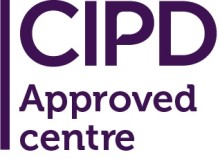
- Human Resources Management
MSc — 2025 entry Human Resources Management
Do you want to develop an advanced level of knowledge and understanding related to the human resource management function in organisations? Our course offers engaging academic study with the development of important professional skills that will impress prospective employers.
Why choose
this course?
- As a human resource management student you’ll be based in the Surrey Business School and be part of a vibrant community, focused on improving business practice and creating a sustainable and positive change.
- Designed for students who have studied human resources management (HRM) or related modules in an undergraduate business degree, our MSc in Human Resources Management will give you the skills you need to help organisations of all kinds lead with dynamic, forward-thinking HR.
- Our course is accredited by the Chartered Institute of Personnel and Development (CIPD), providing opportunities to enhance your employability. Students will become Associate Members of the CIPD upon graduating, with the option of applying to upgrade to Chartered membership dependent on their work experience.
- Outside of the course, studying with us gives you access to exciting industry-specific talks and valuable networking events with HR leaders, skills workshops and much more. You'll also have the opportunity to conduct applied HR research in a real organisation.
- The School is renowned for its:
- World-class teaching and research
- Strong focus on entrepreneurship and enterprise
- Vibrant and diverse community
- Excellent career prospects.
Statistics
Fantastic graduate prospects
94% of our Surrey Business School postgraduate students go on to employment or further study (Graduate Outcomes 2024, HESA)
Top 10
Surrey is ranked 9th in the UK for overall satisfaction (Postgraduate Taught Experience Survey 2023)
Research Excellence Framework (REF) 2021
We have increased our overall research quality ranking by 12 places to 33rd in the UK
Accreditation


What you will study
Our course will develop your ability to use human resources to create added value for organisations and their workforces. It places strong emphasis on both stimulating academic study and professional skills development by applying evidence-based analytics and research to contemporary HR issues.
This course has a strong applied focus. For instance, you'll receive essential training in HR analytics and research skills, and then apply what you’ve learnt in a professional organisation.
The course is built around our core research and teaching strengths:
- Leadership and decision-making
- Organisational and HR assessment
- Quality of working life
- The future of work.
Professional recognition
MSc - Association to Advance Collegiate Schools of Business (AACSB)
Accredited by the Association to Advance Collegiate Schools of Business (AACSB).
MSc - Chartered Institute of Personnel and Development (CIPD)
Accredited by the Chartered Institute of Personnel and Development (CIPD).
In Semester 1, you’ll be introduced to the foundations of people management and human resources management practices, as well as to methods and analytics for HR research.
In Semester 2, you’ll specialise further in advanced areas of HRM, such as employment law, resourcing, and human resources development. You'll also attend HR skills workshops and HR policies and practice seminars. These workshops and seminars are provided to give you the opportunity to develop your practical abilities as well as your professional network. You’ll be able to develop further your professional skills through our regular practitioner events with senior HR leaders and the local CIPD branch.
The structure of our programmes follows clear educational aims that are tailored to each programme. These are all outlined in the programme specifications which include further details such as the learning outcomes:
Modules
Modules listed are indicative, reflecting the information available at the time of publication. Modules are subject to teaching availability, student demand and/or class size caps.
The University operates a credit framework for all taught programmes based on a 15-credit tariff, meaning all modules are comprised of multiples of 15 credits, up to a maximum of 120 credits.
Course options
Year 1
Semester 1
Compulsory
The module explores the employment relationship from a socio-economic perspective. It is one of the specialist units on the programme and analyses the relationship at the heart of the employment connection. It gives a broad appreciation of the role of the human resources professional and the line manager in managing employment relations. Our focus is on the dynamic and varied nature of the employment relationship, focusing on the role of management, employees, and the state in both national and international perspectives. The module is broadly divided into three sections: (1) Contemporary Employment Relations actors, (2) comparative and international Contemporary Employment Relations and (3) applied Contemporary Employment Relations issues.
View full module detailsThis module is designed to appeal to a range of students who may be considering a managerial HRM career. The unit is designated as core by the Chartered Institute of Personnel and Development (CIPD) making its successful completion a prerequisite for those seeking chartered membership. It is intended to provide students with a holistic understanding of the requirements for the successful management of people in an organization, with an emphasis on leadership and developmental opportunities. It is intended that this module will support students to develop a body of knowledge leading them to become effective managers as well as HR specialists. Hence the aims and objectives of HRM/HRD work, equality and diversity, business ethics, flexible working patterns, employee engagement and the effective management of change are studied.
View full module detailsIn this module, we will describe and explain the environmental context of the practice of HRM. Specifically, we will explore, identify, and understand organizational responses to the business environment. A primary organizational response to managing uncertainty inherent in the business environment is the adoption and implementation of a competitive or business strategy. From an HR perspective, this entails the adoption of a strategic perspective to the management of employees in order to create the human resource capability to implement this business strategy and ultimately create sustained competitive advantage. The module is therefore intended to provide students with a holistic understanding of the changing organizational contexts that have significant effect on the HR function. Topics covered include the global economy, political, social, legal, demographic and technological developments as they define the competitive environment of organisations and their implications for the HR function. The module is therefore designed to equip a range of students who are seeking to develop a career in HR with the knowledge, competencies, and analytical skills to pursue a career in HR up to a senior managerial role.
View full module detailsThe module introduces and explores key methods of research methods and analytics for HR. The course provides an intermediate grounding in a broad variety of methodological and analytical ‘tools’ for application to common HR and business issues. It provides an applied grounding in methods and the research process for the MANM357 Applied Research Dissertation module, where students explore an HR issue from a business perspective in greater detail. The course is very applied and hands-on with practical lab-based sessions in every session. It takes a ‘tool-box’ approach to the core analytical techniques based upon an intuitive understanding of them with a rule-based approach to their application. At the end of the course, students complete a structured assignment on how to apply principles of research and analytical techniques to a business issue from an HR perspective.
View full module detailsThis module is intended to provide the students with an understanding of the principles of Employment Law and to develop the ability to apply the relevant legal principles in the context of Human resource management. The focus is on developing the necessary legal understanding and skills to be able to advise an employer on the impact of HR decisions and the relevant organisational response to deal with issues in the workplace.
View full module detailsSemester 2
Compulsory
MANM006 provides students with an introduction to human resource development (HRD). It explores the topic from a variety of perspectives through the use of relevant theories, current research and business and organizational practice. The module is aligned closely with the core text book which has been written specifically for this module and in alignment with the CIPD curriculum and learning outcomes: Sadler-Smith, E (2022) Human Resource Development: From Theory into Practice. London: SAGE.
View full module detailsIn this module we introduce some of the most significant areas of human resource management responsibility. Anyone seeking to develop a career in HR, in the UK or globally will find it to be both interesting and essential to their professional development. It will also be of interest to anyone with an interest in the management of people or who anticipates building a generalist management career. Our focus is on how organisations achieve the most fundamental HRM aim of mobilizing a workforce. In order to function effectively, all employers need to always ensure that they have the right people in the right jobs. Increasingly they are also drawing on other sources of skills and expertise accessed from a wider network of people with whom they maintain some form of contractual relationship. It is with the business of staffing an organisation effectively that this module is concerned.
View full module detailsThis module is intended to provide the students with an understanding of the principles of Employment Law and to develop the ability to apply the relevant legal principles in the context of Human resource management. The focus is on developing the necessary legal understanding and skills to be able to advise an employer on the impact of HR decisions and the relevant organisational response to deal with issues in the workplace.
View full module detailsSemester 1 & 2
Compulsory
An applied research dissertation is a core part and the final aspect of MSc programme, enabling students to develop an independent piece of work in subject area that is particularly interesting to them, supervised by a member of faculty. The dissertation must comprise: An academic dissertation: identifying an applied topic of interest, identifying a gap in the literature, and developing and carrying our research to investigate or examine that gap. Primary research: data collection and analysis (use of secondary data or other sources of data must be approved by you supervisors). Fieldwork: research carried out in an organizational setting. Practically relevant implications: addressing either a research gap that has clear implications for management practice.
View full module detailsThis module is designated as Core by The Chartered Institute of Development (CIPD) making its successful completion a prerequisite for those seeking Chartered Membership. This assessment method will ensure alignment with other Universities and other providers of the CIPD advanced level qualification.
View full module detailsOptional modules for Year 1 (full-time) - FHEQ Level 7
All September intake will undertake MANM004 in Semester 2.
Year 1
Semester 1
Compulsory
This module is designed to appeal to a range of students who may be considering a managerial HRM career. The unit is designated as core by the Chartered Institute of Personnel and Development (CIPD) making its successful completion a prerequisite for those seeking chartered membership. It is intended to provide students with a holistic understanding of the requirements for the successful management of people in an organization, with an emphasis on leadership and developmental opportunities. It is intended that this module will support students to develop a body of knowledge leading them to become effective managers as well as HR specialists. Hence the aims and objectives of HRM/HRD work, equality and diversity, business ethics, flexible working patterns, employee engagement and the effective management of change are studied.
View full module detailsIn this module, we will describe and explain the environmental context of the practice of HRM. Specifically, we will explore, identify, and understand organizational responses to the business environment. A primary organizational response to managing uncertainty inherent in the business environment is the adoption and implementation of a competitive or business strategy. From an HR perspective, this entails the adoption of a strategic perspective to the management of employees in order to create the human resource capability to implement this business strategy and ultimately create sustained competitive advantage. The module is therefore intended to provide students with a holistic understanding of the changing organizational contexts that have significant effect on the HR function. Topics covered include the global economy, political, social, legal, demographic and technological developments as they define the competitive environment of organisations and their implications for the HR function. The module is therefore designed to equip a range of students who are seeking to develop a career in HR with the knowledge, competencies, and analytical skills to pursue a career in HR up to a senior managerial role.
View full module detailsSemester 2
Compulsory
In this module we introduce some of the most significant areas of human resource management responsibility. Anyone seeking to develop a career in HR, in the UK or globally will find it to be both interesting and essential to their professional development. It will also be of interest to anyone with an interest in the management of people or who anticipates building a generalist management career. Our focus is on how organisations achieve the most fundamental HRM aim of mobilizing a workforce. In order to function effectively, all employers need to always ensure that they have the right people in the right jobs. Increasingly they are also drawing on other sources of skills and expertise accessed from a wider network of people with whom they maintain some form of contractual relationship. It is with the business of staffing an organisation effectively that this module is concerned.
View full module detailsThis module is intended to provide the students with an understanding of the principles of Employment Law and to develop the ability to apply the relevant legal principles in the context of Human resource management. The focus is on developing the necessary legal understanding and skills to be able to advise an employer on the impact of HR decisions and the relevant organisational response to deal with issues in the workplace.
View full module detailsOptional modules for Year 1 (part-time) - FHEQ Level 7
All September intakes will undertake MANM004 in Semester 2.
Year 2
Semester 1
Compulsory
The module explores the employment relationship from a socio-economic perspective. It is one of the specialist units on the programme and analyses the relationship at the heart of the employment connection. It gives a broad appreciation of the role of the human resources professional and the line manager in managing employment relations. Our focus is on the dynamic and varied nature of the employment relationship, focusing on the role of management, employees, and the state in both national and international perspectives. The module is broadly divided into three sections: (1) Contemporary Employment Relations actors, (2) comparative and international Contemporary Employment Relations and (3) applied Contemporary Employment Relations issues.
View full module detailsThe module introduces and explores key methods of research methods and analytics for HR. The course provides an intermediate grounding in a broad variety of methodological and analytical ‘tools’ for application to common HR and business issues. It provides an applied grounding in methods and the research process for the MANM357 Applied Research Dissertation module, where students explore an HR issue from a business perspective in greater detail. The course is very applied and hands-on with practical lab-based sessions in every session. It takes a ‘tool-box’ approach to the core analytical techniques based upon an intuitive understanding of them with a rule-based approach to their application. At the end of the course, students complete a structured assignment on how to apply principles of research and analytical techniques to a business issue from an HR perspective.
View full module detailsThis module is intended to provide the students with an understanding of the principles of Employment Law and to develop the ability to apply the relevant legal principles in the context of Human resource management. The focus is on developing the necessary legal understanding and skills to be able to advise an employer on the impact of HR decisions and the relevant organisational response to deal with issues in the workplace.
View full module detailsSemester 2
Compulsory
MANM006 provides students with an introduction to human resource development (HRD). It explores the topic from a variety of perspectives through the use of relevant theories, current research and business and organizational practice. The module is aligned closely with the core text book which has been written specifically for this module and in alignment with the CIPD curriculum and learning outcomes: Sadler-Smith, E (2022) Human Resource Development: From Theory into Practice. London: SAGE.
View full module detailsSemester 1 & 2
Compulsory
An applied research dissertation is a core part and the final aspect of MSc programme, enabling students to develop an independent piece of work in subject area that is particularly interesting to them, supervised by a member of faculty. The dissertation must comprise: An academic dissertation: identifying an applied topic of interest, identifying a gap in the literature, and developing and carrying our research to investigate or examine that gap. Primary research: data collection and analysis (use of secondary data or other sources of data must be approved by you supervisors). Fieldwork: research carried out in an organizational setting. Practically relevant implications: addressing either a research gap that has clear implications for management practice.
View full module detailsThis module is designated as Core by The Chartered Institute of Development (CIPD) making its successful completion a prerequisite for those seeking Chartered Membership. This assessment method will ensure alignment with other Universities and other providers of the CIPD advanced level qualification.
View full module detailsOptional modules for Year 2 (part-time) - FHEQ Level 7
All Year 2 part-time students will undertake MANM004 in Semester 1.
General course information
Contact hours
Contact hours can vary across our modules. Full details of the contact hours for each module are available from the University of Surrey's module catalogue. See the modules section for more information.
Timetable
Course timetables are normally available one month before the start of the semester.
New students will receive their personalised timetable in Welcome Week, and in subsequent semesters, two weeks prior to the start of semester.
Please note that while we make every effort to ensure that timetables are as student-friendly as possible, scheduled teaching can take place on any day of the week (Monday – Friday). Wednesday afternoons are normally reserved for sports and cultural activities. Part-time classes are normally scheduled on one or two days per week, details of which can be obtained from Academic Administration.
Location
This course is based at Stag Hill campus. Stag Hill is the University's main campus and where the majority of our courses are taught.
We offer careers information, advice and guidance to all students whilst studying with us, which is extended to our alumni for three years after leaving the University.
94 per cent of our Surrey Business School postgraduate students go on to employment or further study (Graduate Outcomes 2024, HESA).
Some of our graduates have gone on to start their careers in the following roles:
- Employee engagement lead
- Equality diversity and inclusion lead/adviser/manager
- HR business partner
- HR data analyst
- HR organisational and development specialist
- HRM manager/director
- Recruitment consultant
- Reward analyst
- Reward and benefits manager/specialist
- Talent acquisition partner
- Talent and development lead.


Vijay
Graduate - Human Resources Management MSc
"The industry connections and the success of my fellow students is a testament to the platform that Surrey provides."


Michelle Ching
Graduate - Human Resources Management MSc
"I was drawn to Surrey due to the reputation of the university and the Business School, as well as the stunning campus."
UK qualifications
A minimum of a 2:2 UK honours degree, or a recognised equivalent international qualification.
We may be able to take relevant work experience into consideration if you don't meet these requirements. If you have at least one year of relevant experience in a full-time graduate-level role (or a minimum of two years’ experience in a relevant graduate-level part-time role) please provide full details of your role and responsibilities in your personal statement and CV when you submit your application.
English language requirements
IELTS Academic: 6.5 overall with 6.0 in each category.
These are the English language qualifications and levels that we can accept.
If you do not currently meet the level required for your programme, we offer intensive pre-sessional English language courses, designed to take you to the level of English ability and skill required for your studies here.


International Pre-Masters
Prepare for postgraduate study and boost your career prospects. This is an intensive programme of academic subjects, study skills and English language preparation designed to help you succeed.
Recognition of prior learning
We recognise that many students enter their course with valuable knowledge and skills developed through a range of ways.
If this applies to you, the recognition of prior learning process may mean you can join a course without the formal entry requirements, or at a point appropriate to your previous learning and experience.
There are restrictions for some courses and fees may be payable for certain claims. Please contact the Admissions team with any queries.
Scholarships and bursaries
Discover what scholarships and bursaries are available to support your studies.
Fees per year
Explore UKCISA’s website for more information if you are unsure whether you are a UK or overseas student. View the list of fees for all postgraduate courses.
September 2025 - Full-time - 1 year
- UK
- £15,200
- Overseas
- £24,900
September 2025 - Part-time - 2 years
- UK
- £7,600
- Overseas
- £12,500
- If you are on the two-year part-time masters programme, the annual fee is payable in Year 1 and Year 2 of the programme
- These fees apply to students commencing study in the academic year 2025-26 only. Fees for new starters are reviewed annually.
Payment schedule
- Students with Tuition Fee Loan: the Student Loans Company pay fees in line with their schedule (students on an unstructured self-paced part-time course are not eligible for a Tuition Fee Loan).
- Students without a Tuition Fee Loan: pay their fees either in full at the beginning of the programme or in two instalments as follows:
- 50% payable 10 days after the invoice date (expected to be October/November of each academic year)
- 50% in January of the same academic year.
- Students on part-time programmes where fees are paid on a modular basis: cannot pay fees by instalment.
- Sponsored students: must provide us with valid sponsorship information that covers the period of study.
The exact date(s) will be on invoices.
Additional costs
Please note that any cost related to Chartered Institute of Personnel and Development (CIPD) membership, in case you want to join, is not covered by the University.
Funding
You may be able to borrow money to help pay your tuition fees and support you with your living costs. Find out more about postgraduate student finance.
Apply online
To apply online first select the course you'd like to apply for then log in.
Select your course
Choose the course option you wish to apply for.
Sign in
Create an account and sign into our application portal.
Please note that we may have to close applications before the stated deadline if we receive a high volume of suitable applications. We advise you to submit your application as soon as it is ready.
ApplyPlease note that we may have to close applications before the stated deadline if we receive a high volume of suitable applications. We advise you to submit your application as soon as it is ready.
ApplyAdmissions information
Once you apply, you can expect to hear back from us within 14 days. This might be with a decision on your application or with a request for further information.
Our code of practice for postgraduate admissions policy explains how the Admissions team considers applications and admits students. Read our postgraduate applicant guidance for more information on applying.
About the University of Surrey
Need more information?
Contact our Admissions team or talk to a current University of Surrey student online.
Terms and conditions
When you accept an offer to study at the University of Surrey, you are agreeing to follow our policies and procedures, student regulations, and terms and conditions.
We provide these terms and conditions in two stages:
- First when we make an offer.
- Second when students accept their offer and register to study with us (registration terms and conditions will vary depending on your course and academic year).
View our generic registration terms and conditions (PDF) for the 2024/25 academic year, as a guide on what to expect.
Disclaimer
This online prospectus has been published in advance of the academic year to which it applies.
Whilst we have done everything possible to ensure this information is accurate, some changes may happen between publishing and the start of the course.
It is important to check this website for any updates before you apply for a course with us. Read our full disclaimer.






